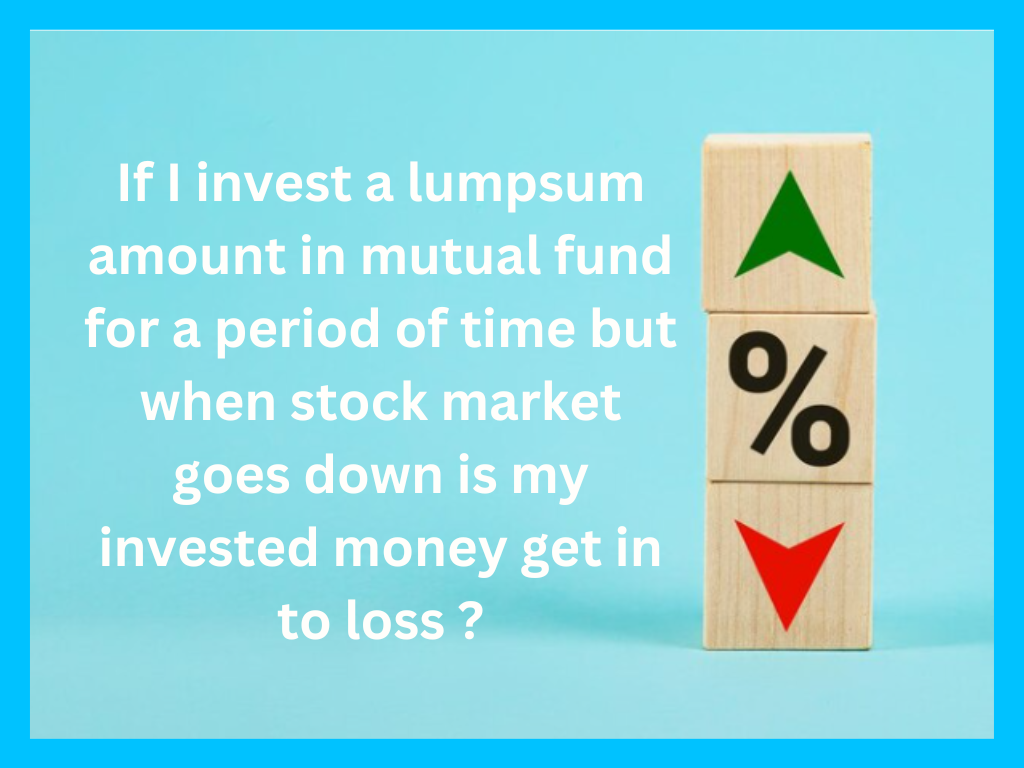If I invest a lumpsum amount in mutual fund for a period of time but when stock market goes down is my invested money get in to loss ?
When you invest a lump sum amount in a mutual fund, your investment is subject to market risks, which means that the value of your investment can go up or down depending on the performance of the underlying securities in which the mutual fund invests.
If the stock market goes down after you have invested your money, the value of your investment in the mutual fund will also go down, resulting in a temporary loss. However, it's important to remember that investing in mutual funds is a long-term game and the stock market tends to move in cycles. This means that even if the stock market goes down in the short term, it is likely to recover over the long term, potentially resulting in gains for your investment.
To mitigate the risk of losses in a volatile market, one strategy is to invest in mutual funds with a diversified portfolio of securities across different sectors and asset classes. This helps spread the risk and reduces the impact of a downturn in a specific sector or asset class on the overall portfolio.
Another strategy is to invest through Systematic Investment Plans (SIPs) instead of lump sum investments. In an SIP, you invest a fixed amount of money at regular intervals (such as monthly or quarterly), regardless of the market conditions. This allows you to average out the cost of your investment and reduce the impact of market fluctuations on your overall investment.
In summary, while investing in mutual funds involves market risks and the possibility of temporary losses, a well-diversified portfolio and a long-term investment horizon can help mitigate these risks and potentially result in gains over the long run.


